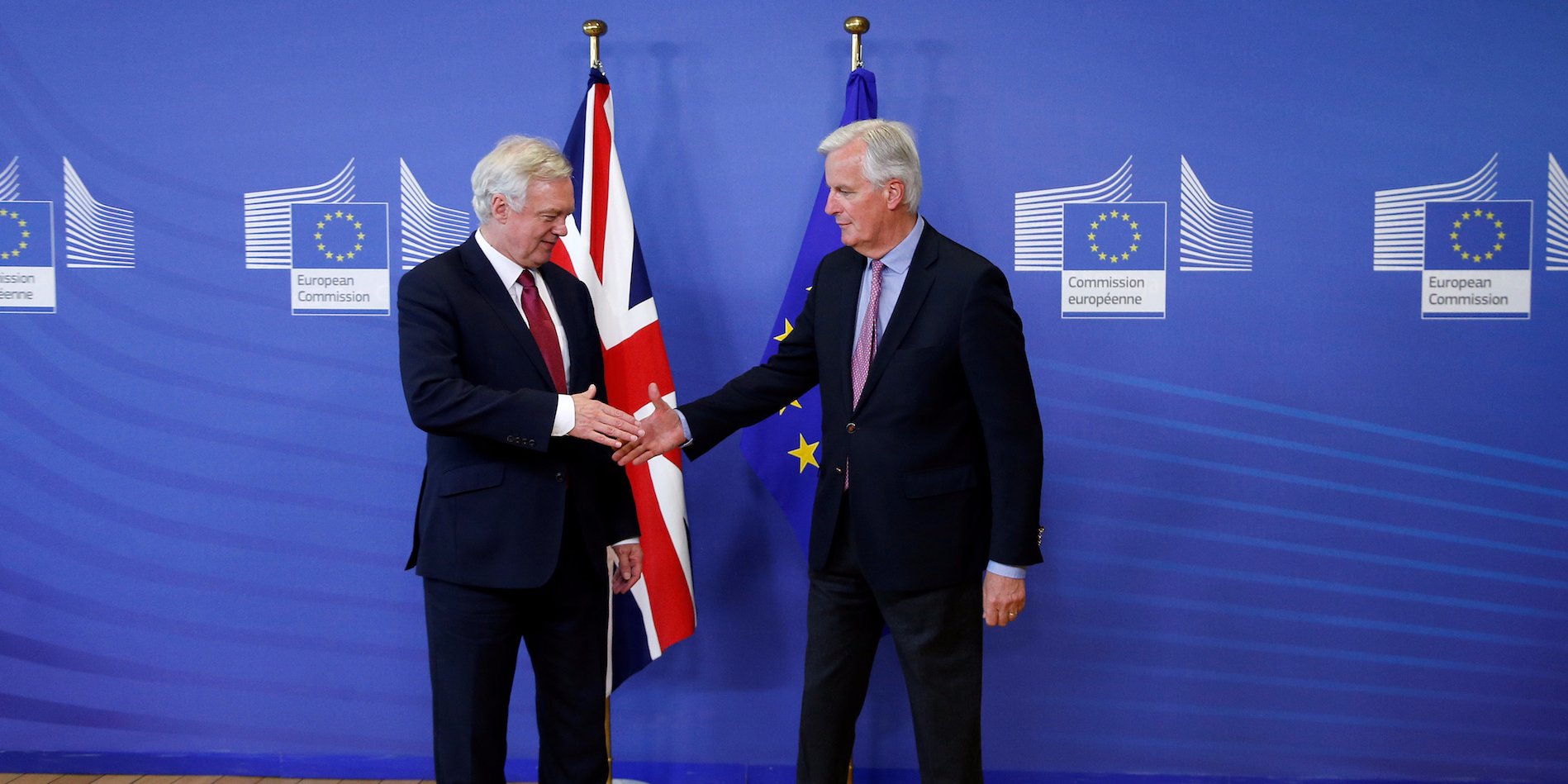 Brexit secretary David Davis greets the EU’s chief negotiator Michael BarnierReuters
Brexit secretary David Davis greets the EU’s chief negotiator Michael BarnierReuters
- The estimates of the economic impact of Brexit were “overly pessimistic,” a new report has suggested.
- The Policy Exchange think tank says the models used to assess Brexit’s impact were misleading.
- The report says the effect of leaving the EU on growth “while negative, will be small”.
LONDON — An analysis published by the centre-right Policy Exchange group suggests that official estimates of the economic impact of Brexit were “overly pessimistic”.
The report, released on Tuesday morning, says that the impact of Brexit on the UK’s economy will be “much less significant” than the pessimistic predictions given by the Remain campaign and the government at the time.
Dr Graham Gudgin, PolicyExchange’s new Chief Economics Adviser and the co-author of the report, said “The forecasts for the impact of Brexit on international trade undertaken by the Treasury, OECD and IMF were based on ‘gravity models’, which predict the amount of trade between countries based on account factors like the size of trading economies and the distance between them.”
“We have replicated the Treasury’s gravity model results and examined them in detail and we believe that they were overly pessimistic.”
Last year the Treasury published data suggesting that Brexit would be an economic disaster, with then-Chancellor George Osborne saying that a Leave vote would cause an “immediate and profound” economic shock, and Brexit would cause a year-long recession, with the loss of more than 820,000 jobs.
In contrast to this, Gudgin said, “the Treasury and OECD estimated the average potential trade loss across all 28 EU members, and did not take into account that the UK has a very different trade relationship with the EU. In our analysis the estimated loss of UK trade is only 23%. This is consistent with the declining importance of the EU in UK trade over the last 20 years.”
“The overall conclusion is that the effect of leaving the EU on economic growth, while negative, will be small, and any associated knock-on impacts will similarly not be large.”
Since the vote to leave the EU inflation has risen to 2.9%, its highest since 2013, the pound has slumped and the markets have been volatile.
Negotiations for Britain’s exit from the EU began on June 19. There has been a lot of debate in recent weeks about the merits for a “soft” or “hard” Brexit, with a poll finding that more Britons favour soft Brexit, prioritising free trade over cutting immigration.
NOW WATCH: Ivanka Trump’s Instagram put her at the center of a controversy over her lavish art collection













